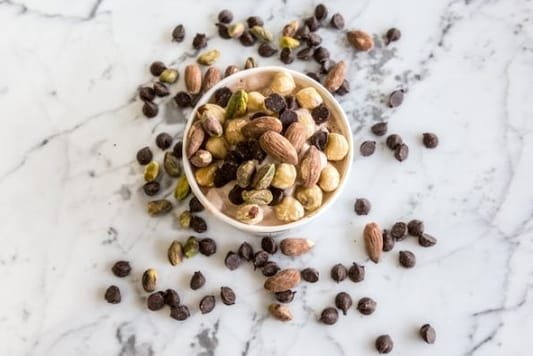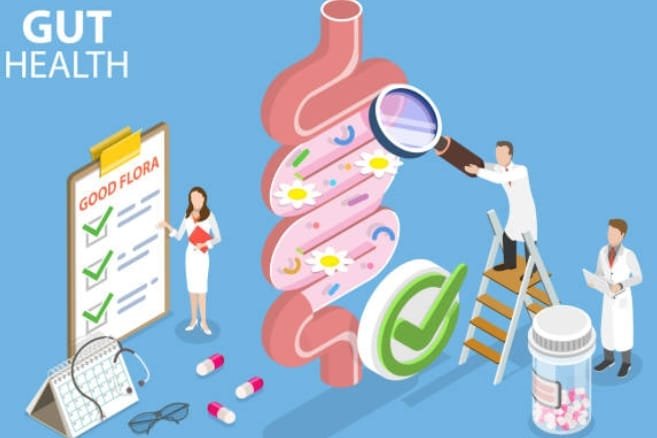
by admin | Jun 10, 2022 | Health, Mind
Nature Therapy
Fun Ideas For The Different Types Of Nature Therapy Practices Most of us live fast-paced, urbanized, and hectic lives with little free time and possibility to rest surrounded by wildlife. As we explained in our previous article, nature therapy is when one spends time in nature doing activities aimed at reconnecting them to the environment with the purpose of bettering their mental and physical health.
Humans are a part of a vast ecosystem that is filled with natural antidepressants, stress-relievers, system-boosters, etc. The thing is… Many of us sometimes forget to benefit from it. Nature therapy’s idea is to build or strengthen the connection with our natural habitat and utilize its multiple resources with the help of various fun and calming activities.
This is why we have compiled a list of actions often recommended by psychologists for this exact purpose. Here are the best nature therapies to try!
Meditating (ommm….)

This is mostly used as a time for self-reflection and introspection. While meditating in a room can prove challenging for people with high stress levels, the entire trip up to the meditation spot in nature calms them down enough to make the whole experience much easier and more enjoyable. People have also said that the calming effects of simply being surrounded by nature are sometimes enough to make them feel better, even if they’re having difficulty meditating.
Different practices of outdoor meditation may include focusing on a specific object (like a tree or a flower instead of the whole forest) or a sound (like a river or the birds) and thinking about exactly where they come from and why they matter.
This is done so that you can understand better that some things just are… and that’s okay. Two very different types of people benefit a lot from outdoor meditation, and those are the elderly people with little daily activities and people with extremely busy lives. The reason for the first group is that they can connect with the big trees, for example or the essentially eternal bodies of water, and feel at peace while just existing.
The second type often focuses on things that are smaller to remind themselves of their individuality and their innocence in being simply what they are with no further responsibilities.
Playing with animals (from animal-assisted therapy)

Connecting with different species can be extremely therapeutic especially if you spend a lot of time alone. You can walk dogs, play with bunnies, chickens, or even horses and while doing so, remind yourself of all the beautiful things a living being can do and all the excellent qualities it has.
It is common for people with different illnesses to have treatment pets because of the trust, dependence, and love they build for each other. A lot of psychologists recommend getting in contact with animals in order to establish those connections exactly. Spending time with something completely different from you, but still managing to build a bond and have a great time is often a very grounding experience.
And let us tell you this – Such experiences can massively help battle anxiety and depression. If you can’t have a pet due to personal reasons, going to the zoo or a dog shelter can do the trick almost as well, and it has the benefit of making the trip the focus of your day.
Camping (from wilderness therapy)
Here you let go of modern-day comfort and choose to depend solely on nature and your own actions. Such activities are helpful in gaining confidence in yourself and realizing that you are capable of way more than what you do on a daily basis. Improving feelings like self-worth and accomplishment are why most people try this type of therapy, seeing as it offers you a situation in which you both have the stimulation needed to act in the moment and your progress is visibly tangible.
You can try camping on a beach or mountain as well as hiking, visiting caves and waterfalls or even going fishing or bird spotting in rugged terrain.
Going to an outdoor workout (from green exercise therapy)
Running or cycling outside is better than doing so in the gym both for your physical and mental health, but what you hadn’t thought of probably is that you can do many more different types of exercise in the fresh air. Take Tai-chi or dancing for example – there are open-field classes in which you not only get your workout in but also come in contact with nature.
Many people suggest you try doing these activities or similar ones barefoot both because it’s easier to feel one with your surroundings and because it helps with the flow of the movements themselves.
Rafting (from adventure therapy)
The idea here is to explore what’s outside of your comfort zone. Although you can go by yourself, many people recommend you go with your therapist so that they have a first-person perspective on how you’re feeling at the moment and help you overcome your fears if you need assistance.
Facing something big, exciting, and maybe a bit scary gives you a thrill but has a calming effect afterward. Doing the action itself gives you the adrenaline boost while realizing it wasn’t so scary after all, and knowing that you managed to do it calms you down and makes you both humble and accomplished.
This kind of therapy is often used for treating addiction because it reminds people that good emotions, either intense or not, can be found through your own actions instead of different substances. If you can’t go rafting, you can try bungee jumping, rock climbing, zip-wiring, and many more, depending on where you live.
Gardening (from horticulture therapy)

The idea here is to take care of something and watch it grow. Many people lose their sense of individuality and forget that their actions have actual consequences, especially when they’re a part of a huge company, for example. In situations like this one or if you’re living alone in a new city, you can feel as if the effort you put in is not worth as much as you thought it did or would like it to.
Taking care of something and nurturing it to reach its next stage of development is a very hands-on example of why your actions are essential. Knowing that something depends on you and that you’re important for something you love can give you a sense of purpose you may lack in a bustling cityscape. You can make a micro-sized garden in your own apartment (if you don’t have a lot of space, you can take care of one or two potted plants) or a more sizable gardening place if you have a yard, and both are interchangeable and fun throughout the entire process.
To Wrap It Up
Nature therapy has many different practices and provides countless opportunities suitable for people from all walks of life. You will undoubtedly find something you love as a program in nature therapy, and it will not only help you with your problems but can also be made into a lifelong hobby or even passion. Most people have shared that exploring the world and themselves by connecting to it through different activities has not only pulled them out of a rut but helped them grow in ways nothing else could.
With its overwhelming positive effects and ways they can be achieved, there’s really no reason why you shouldn’t try at least one or two of the ideas on this list. We are sure that they will give you an experience you will remember forever.

by admin | Jun 10, 2022 | Health
Top 3 Most Satiating Foods
When it comes to weight loss, there are a lot of things to think about. What type of exercise should you do? How many calories should you eat each day? What’s the best way to cut down on snacking? But one of the most important factors is actually what you eat.
So today, we’re going to take a look at three of the most satiating foods out there. Stay tuned for some tips on how to incorporate them into your diet!
Why Is Satiety Important?
Satiety is important in a weight loss diet because it prevents over-eating and helps control hunger, cravings, and sudden ‘small’ snacks. When you feel full after eating, you are less likely to indulge in unhealthy snacks or overeat later on in the day. This makes it easier to stick to your calorie goals and lose weight gradually over time. To put it simply – Not thinking about food is detrimental to the success of a weight loss diet.
The Satiety Index
The satiety index is a measure of how much food satisfies hunger. High-satiety foods are satisfying and leave you feeling full, while low-satiety foods leave you hungry shortly after eating them. Foods with moderate satiety scores have an effect somewhere in between the two extremes. The idea behind the satiety index is to help people identify the foods that will make them feel fuller for longer after eating.
Usually, foods abundant in protein and fat are considered the most satiating. But for a plot twist, let’s have a look at the topmost satiating foods, starting with number 1, that is…
#1 Potatoes

Now, we just mentioned that foods high in protein and fat are the most satiating, but surprisingly, the product with the highest satiety index is… The potato! If you’ve had a seemingly small serving of mashed potatoes, only to feel full after eating it, you know the deal! One of the reasons why potatoes are so filling is that they have a protein that seems to act as an appetite suppressor.
And besides, potatoes are thick! So, if you are on a weight loss diet, make sure to include this food regularly, in your main meals!
#2 Animal Products

When it comes to diets, one of the most important things to consider is how filling the food is. Generally speaking, besides potatoes, animal products are the most satiating, while plant-based foods are generally less satiating. This is because animal products contain more protein and fat, which are both more satiating than carbohydrates.
And so, if you are an omnivore, adding a steak to your serving of potato mash is one of the wisest decisions to keep you full and satiated for hours to come!
#3 Nuts

Speaking of dense foods, we can’t exclude nuts from the list! Nuts are one of the most satiating foods you can include in your diet. They are high in protein and fats, and generally low in carbohydrates. This combination makes them a great choice for anyone looking to lose weight all while feeling full. If you want to snack on something, try some dried fruits, cashew, almonds, macadamia, and other nuts!
The Verdict
So what are the three most satiating foods? Drumroll please….Potatoes, animal products, and nuts! While there are many other great options that can help keep you feeling fuller longer, these three seem to be at the top of the list. Have you tried any of them? If not, maybe it’s time to add them to your next shopping list! Do you have another favorite, satiating food of yours? Comment below!

by admin | Jun 10, 2022 | Health, Mind
Tricks to Prevent Stress or Sadness-Triggered Shopping
How often has your bank account suffered because your boss pissed you off, or you were going through a tough break-up, moved to a new place, lost a friend? It isn’t an urban myth. Some people seek instant pleasure in shopping whenever they feel bad and lonely.
However, sadness-triggered shopping isn’t good for your wallet, and let alone your mental health. Before we discuss ways to prevent shopping when you feel bad, let’s look at why this type of shopping is unhealthy.
Why is Sadness-Buying Bad for You?

The things you buy impulsively are often inexpensive, in mid-range from $40 – $100. But, despite the costs, impulse buying is your enemy number one if you are looking to save some money. On the other hand, the items you buy impulsively only provide a short-term feeling of happiness. They won’t fix the problem you have or make you feel good about yourself. Also, some people feel guilt after impulse buying, which gets them in a never-ending loop of impulse, stress-triggered shopping. First, they feel bad.
Then, they buy items to make them feel better. Once they can think clearly, those people might understand why the bought items are unnecessary and not money-well spent. Then, they feel bad again for not being able to control their emotions and credit cards. Some may even buy new items to make them feel good. The circle continues, and people aren’t even aware that they are in the loop. Stress-triggered shopping masks the real issue you are going through, and they prevent you from dealing with it and confronting your emotions.
How to Prevent Yourself from Buying out of Sadness?

Embrace your feelings and allow yourself to feel sad for the moment. Don’t seek short-term pleasures. A study showed that sadness makes people spend more, so think about what you would do better with your money instead of spending it on meaningless items. Restraining yourself from shopping when you are said, is a huge step. So, the next section is for you.
Stay in Charge of Your Wallet with the Next Tips

Here are some tips to help you overcome your urge to click Add in the chart whenever you feel lonely or sad.
#1 Clean
Cleaning your home or workspace is an effective way to distract yourself from choosing new clothes and shoes. Get your hands dirty, and thoroughly clean your kitchen, bathroom and closet. Go through your makeup collection and declutter. Get rid of all unnecessary items, and you’ll feel you have more space to breathe and feel better.
During the process, you’ll discover some items you might have forgotten about!
#2 Call a Friend
Before you decide to spend money, call your friend and discuss whether it is a good idea. That way, you’ll delay your impulse decision to buy new things, so your mind might get clearer. Hopefully, your friend will advise you against unnecessary money spending. You’ll also get a chance to discuss the real reasons behind your impulse urge to shop with someone who you have trust in and who you love.
#3 Do Self Care
When you’re in a bad mood, putting on a face mask and relaxing in the tub will make you feel as good as if you’ve just purchased a new pair of shoes. On top of everything, you’ll get a chance to calm down and reflect on your current situations and thoughts.
Not only will it delay the impulse for shopping, but it can also help you understand why it isn’t a good idea, or what you can do to help yourself in the long run. Do you buy when you’re sad? What is most ridiculous item you bought out of sadness and loneliness?
Please consider liking the article if you enjoyed it!

by admin | Jun 10, 2022 | Health, General
How To Eat On A Busy Schedule
Many of us are trapped in the busy city life, where time is tight, everything is rushed and there is little to no time for you to give your body all the essential nutrients it needs. Without a doubt, daily life-induced stress, combined with malnutrition can lead to a serious downfall in performance, both mental and physical.
This daily life-induced stress inevitably leads to burnouts and one of the best steps to deal with it, is to learn how to fuel your body on a day to day basis.
Is Nutrition Really Everything?

Now, nutrition isn’t really everything there is to managing stress from daily life, but it can be a powerful tool to do so for a couple of reasons. First off, food is not just nutrients. Though the common belief about food nowadays is mainly related to the caloric and macronutrient content, that is not all there is to nutrition.
Besides being the body’s fuel for performance and recovery, nutrition is a form of art, enjoyment and pleasure. This can bring about a more relaxed, content state of mind which will have a positive impact on your perception of daily-life stress. So how can you take care of your nutrition consistently, without having to spend countless hours in the kitchen, or all your money on ordered food?
Read our best tips below, as we give you insight on easy, seamless, efficient meal-prep you can use on a busy schedule!
#1 Pick Food Sources

Nutrition isn’t all that hard and its main purpose is to give the body all the essential nutrient it needs to sustain optimal functioning of all bodily systems and processes. The two essential nutrients for the body are protein and fats, as they play major roles in all internal processes. Besides protein and fats, you have carbohydrates, which are not essential, but good to consume, especially if you are mentally and physically active.
Here are our best picks for whole foods, which you can place at the core of your daily menu:
- Beef
- Pork
- Dairy products
- Eggs
- Sweet potatoes
- Normal potatoes
- White/brown rice
- Broccoli
- Carrots
- Kiwis
- Bananas
- Mangoes
- Coconuts
- Oats
#2 Cook in bulk!

If you are looking to save as much time as possible and be efficient with your nutrition and food budget, cooking your own food is your best bet. Furthermore, to catch up with a busy schedule, you have to think ahead of time and prepare your food for the next couple of days.
Preparing your main products in bigger amounts (meats, grains and potatoes) is your best bet, and you can then use those as core products for different meals, where you add side foods such as vegetables, sauces and other side products which can enrich the meal.
#3 Pack It Up!
Once you’ve established the core products of your daily menu and cooked them, all you have to do is pack them up and put them in the fridge for later use. Whenever you’re going out and about, all you need to do is take a food box with you and then, you can consume that any time, anywhere, without having to order food.
Home-cooked food is the best and least expensive option!
Don’t Forget Though
In the beginning, preparing your own food may seem time-consuming, especially if you are not used to cooking. However, once you establish a concrete system, cooking all your food for the week will take just a couple of cooking sessions. This in turn will save you time, money and on top of that, will allow you to consistently provide your body with all the essential nutrients that it needs.
And so, are you ready to make a change for the better?

by admin | Jun 10, 2022 | Health
How to get better sleep
Have you ever wondered how to wake up fresh and ready to crush your day? Have you ever felt your energy level dropping to the ground after being awake for only 3 hours? Today you are going to get all the answers you have always had about sleep.
But first, let’s answer a simple question…
Why do we sleep?

You have a response for that, right? You will say something like “I sleep because I don’t wanna die” and you will be right.
Well, generally… There are a couple of theories that exist to answer this question, however, the explanation is not quite simple: The truth lies in a combination of every one of these theories.
- Psychical recovery – this is the moment where our brain recovers.
- Physical recovery – when we sleep our body recovers and builds certain tissues (muscles).
- Reorganize the memories and information that we accumulated during the day.
- We save energy – when we sleep we need less energy.
If you are not convinced yet, whether to take these important 8 hours of sleep, here’s more…
What happens if we don’t sleep enough?

To answer this question we have to examine the consequences of sleep deprivation. According to a survey, which shows that if you are only sleeping 2-3 hours less than the optimum amount of 8 hours you will have 24% more hunger throughout the day. The increased appetite leads to overweight and risk of many other conditions such as diabetes, high blood pressure, and heart disease in the long term.
Another big issue with sleep deprivation is that we don’t recover optimally. Even if our diet and training plans are on point we’ll have a hard time making these gains. Furthermore, our productivity will decrease as well. In other words, our body will suffer, our mind will suffer, our relationships will suffer. If that isn’t enough to make you get these important 8 hours every night, we have one more thing to convince you to get more serious about it.
Short sleep duration will lose you money!
That’s right. When you had a bad sleep you will have trouble making the right decisions. You are not focused enough and you miss opportunities. Missed opportunities lead to losing money.
After knowing all the consequences of bad sleeping habits, let’s jump straight into some tips that will help you.
How do we actually get better sleep?

The truth is that the quality of your sleep is affected by a variety of factors, some of which you may not even know matter that much… However, there are fundamental truths about sleep, which will do the job if you go by them, so let’s have a look!
- Create a routine
Going to bed at the same hour every night and getting up at the same hour will make your life easier. You should train your brain to “shut down” and wake up at specific times. By doing this, you teach your body when it is time to rest and when it is time to progress.
- Invest in a good mattress
We spend ⅓ of our lives sleeping. With that being said, we shouldn’t compromise the good mattress because it has an important role in the quality of our sleep.
Bonus: The pillow is also a nice investment, so spend your money wisely for a comfortable one.
- Remember the 3 keywords
- Cold – 17-18 degrees is a perfect temperature for sleeping.
- Noise – It should be quiet in your room.
- Darkness – It must be fully dark when you sleep, so buying dark curtains is a smart idea.
- Take a hot bath before sleep
It helps in reducing body temperature, which is important for sleeping.
- Reduce caffeine consumption
Don’t drink caffeinated beverages after late afternoon because your sleep will suffer.
- Don’t look at your phone, laptop, TV before bed
The blue light is damaging your sleep, so reading a book is preferable.
Final thoughts:
If you are finally ready to get the best sleep of your life and say goodbye to insomnia and low-quality sleep, follow these tips and come back here to thank us later!
Sleep tight.

by admin | Jun 10, 2022 | Health
How To Improve Your Gut Health
Gut health is of major importance for our overall well being because it correlates with the brain and it also breaks down the food we consume, which is later turned into vital nutrients. If you have missed the first part, where we explain everything about the importance of our gut, click here (insert a link to part 1) to learn more.
Expensive prebiotic supplements shouldn’t be your go-to option when you experience gut problems. The good bacteria your body requires don’t have to come from pills. In fact, consuming healthy food can impact the amount of “good” bacteria we have in our digestive system. Today we are investigating further into the topic and we are offering some great tips on how to actually improve your gut health.
6 Tips To Improve Your Gut Health

- Change Your Diet
Getting rid of high sugar, trans-fats, and processed food should be your priority if you want your gut to thank you. Consuming more lean protein such as chicken/turkey breasts, beef topside, fish, and quality fibers (oats, whole-grain bread/pasta) will benefit your digestive system. In fact, eating a high-fiber diet has been proven to alter our guts in a positive direction.
- Keep Yourself Hydrated
Drinking 8 glasses of water per day may sound like the most annoying thing your mom used to tell you, but it is actually true. Keeping your body hydrated has been shown to have a positive effect on the balance of the good bacteria in our guts.
- Don’t Rush When Eating
Keeping a slow pace when consuming food is of major importance for the health of your gut. For this reason, chewing slowly can help you digest your food better and absorb all required nutrients. Maintaining a healthy gut and reducing digestive discomfort is guaranteed if you stick to this condition.
So, next time when you are trying to eat as fast as you can, slow down for a second, and think how your gut will react if you continue at the same pace.
- Sleep More

Getting enough uninterrupted sleep is a complicated process for a lot of people, especially those with kids out there. However, not getting enough quality sleep can have a great impact on your gut health. Try to prioritize getting at least 7-8 hours a night.
Not only it will help you maintain a healthy gut, but you will also be more productive throughout the day.
- Eat Fermented Foods
Fermentation is a process where the sugar many foods contain is broken down into bacteria or yeast. One of the foods, which is easy to get and cheap is yogurt. Yogurt is rich in lactobacilli, which is a bacteria that can benefit your gut health. It was proven that people who consume a lot of yogurt, have more lactobacilli in their gut.
These people have less chance to experience gut inflammation or any other chronic conditions. However, keep in mind that there are many sweetened yogurts out there with a lot of added sugar, which are not beneficial. Always search for a natural yogurt with no artificial sweeteners.
- Eat Dark Chocolate
We can almost see the smiles of all chocolate lovers out there. Polyphenols, which are plant-based molecules that are rich in fiber, are found in dark chocolate. They travel to our intestines where microbes use them for fuel. Other foods and beverages that are rich in polyphenols are:
- Blueberries
- Green Tea
- Cocoa
- Broccoli
- Almonds
- Onions
Takeaway Message
A disrupted microbiome, which is found in the gut, can lead to many chronic diseases. There are a lot of lifestyle changes that you can make and with some effort, you can maintain a healthy gut. Avoid artificial sweeteners as much as possible. Eat plenty of vegetables and fresh unprocessed foods. Beans, legumes, and whole-grain foods should also be in your diet.
What are you waiting for?
Your Gut Health is in your hands now. Go and make the most out of it!
Page 3 of 15«12345...10...»Last »





























